Iranian Hackers Hit Israeli Booking Sites, Obtain Info Of 300k Citizens

Iranian hackers have recently targeted several travel booking sites of an Israeli company and stolen personal information of more than 300,000 Israelis.

Iranian hackers have recently targeted several travel booking sites of an Israeli company and stolen personal information of more than 300,000 Israelis.
Local media reported on Friday that Israel’s Privacy Protection Authority confirmed the incident, saying that it occurred two weeks ago.
Iranian hacker group, named Sharp Boys, claimed responsibility, saying in a photo posted on their Telegram channel that "Wherever you go, even on your trips, you are under our control. Remember our name."
The Privacy Protection Authority added following the hack it had immediately contacted the owner of Gol Tours LTD company, that owns over 20 popular travel booking websites, in an effort to address the security breach and make the necessary modifications but was met with a refusal to cooperate reportedly over the costs of the changes.
Authority officials raided the company’s offices on Thursday and seized its servers until the investigation over the cyberattack is complete.
The leaked data include telephone numbers, addresses, dates and locations of booked vacations, and sensitive medical information, the authority said in a statement.
Last week, Israeli Defense Minister Benny Gantz said a cyber unit of the Iranian Revolutionary Guard -- called “Shahid Kaveh” -- conducted research to damage ships, gas stations and industrial plants in several countries including Britain, the US, France and Israel.
Gantz hinted that Israel -- which is widely believed to have waged cyber war against Iran's nuclear facilities and other infrastructure -- may retaliate physically against enemy hackers.
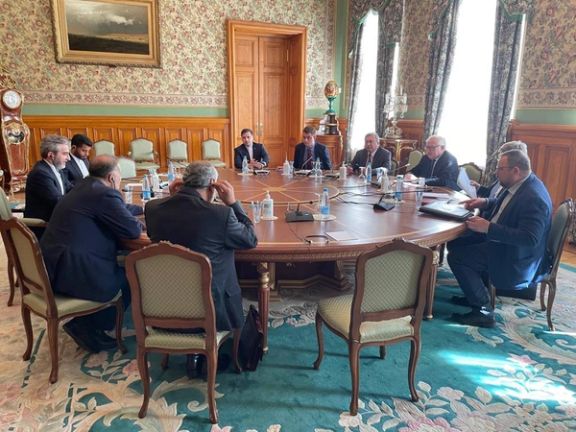
Iran's chief nuclear negotiator Ali Bagheri-Kani has paid an unannounced visit to Russia after Tehran-Washington proximity talks in Doha ended with no results.
The news of the trip to Moscow was released by the twitter account of the Russian permanent mission to the international organizations in Vienna Friday night, but not covered in Iran’s state media.
During his stay, Bagheri-Kani held a meeting with his counterpart Deputy Foreign Minister Sergei Ryabkov while Moscow’s lead negotiator Mikhail Ulyanov was also present in the session.
Ulyanov described the meeting as “a very professional exchange of views” on the current situation around the nuclear deal (the JCPOA, Joint Comprehensive Plan of Action) and prospects of the Vienna negotiations.
He called on the US to “demonstrate greater flexibility,” noting that his assessment is “despite all the difficulties, the nuclear deal still can be restored.”
Earlier in the week in Doha, Bagheri-Kani met Enrique Mora, the European Union official who chaired year-long talks in Vienna aimed at reviving the 2015 landmark deal.
On Friday, UN Under-Secretary-General for Political and Peacebuilding Affairs Rosemary DiCarlo called on both the United States and the Islamic Republic “to quickly mobilize in the same spirit and commitment to resume cooperation under the JCPOA.”
Moreover, in a Thursday statement ahead of a Security Council meeting on the implementation of resolution 2231 that endorsed the 2015 nuclear deal, the UK, France and Germany called on Iran to stop and reverse its nuclear escalation, return to full cooperation with IAEA and seize the offer on the table without further delay.
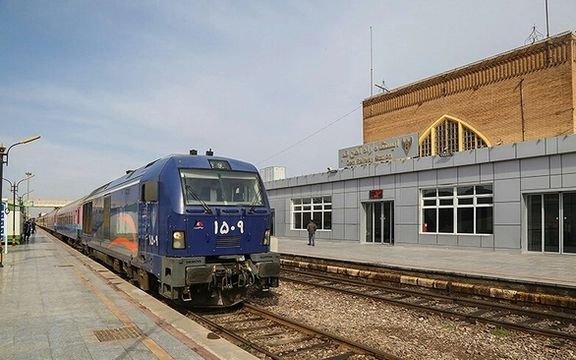
China is lending Iran around $2.3 billion for a fast train project between Qom and Esfahan with a substantial interest rate, Tehran daily Shargh has reported.
In an article by economy writer Maryam Shokrani on Saturday [July 2], Shargh reported that China has already opened a letter of credit for the project and will complete the payment of the 15-billion-yuan loan until 2024.
The loan is scheduled to be repaid until 2029 and the interest charged will boost Iran’s debt to almost 22 billion yuan, or $3.2 billion.
The reformist paper, which is relatively independent from the government, although under the rules of censorship in Iran says that the project has little economic justification, as passenger rail service in the country is a money loser. Instead, vital economic railway projects in the north and in the south-east have been languishing for years.
As an example, the report mentions a planned railway connection between the Arabian Sea port of Chabahar and the city of Zahedan Sistan-Baluchistan province. Iran has been hoping that the port will boost transit of goods not only for its local market but also to other countries. India made investments in the development of Chabahar with the hope of avoiding Pakistan in shipping goods to Iran, Afghanistan and other countries to the north.
Shargh argues that as has been the case in many other less-developed countries, China is in the business of financing similar projects and if repayment in cash proves difficult, it takes oil and minerals instead.
Iran’s foreign and international trade policies have tilted toward China in the last decade, following a policy of ‘looking East’ espoused by the country’s ruler, Supreme Leader Ali Khamenei. Tehran inked a 25-year strategic cooperation agreement with Beijing last year, which has proven controversial among some Iranians.
The issue is that Tehran has been quite consistent in following an anti-West and an anti-Israel foreign policy in the Middle East, supporting a variety of militant organizations, developing ballistic missiles and pursuing a nuclear program. This first brought about international sanctions from 2007-2015 and then United States crippling sanctions in 2018.
The restrictive measures have considerably weakened its economy and mostly eliminated infrastructure development projects.
A former Iranian railway official, Mahmoud Heshmati told Shargh that the Qom-Esfahan fast train project has no economic justification. Turkey and Saudi Arabia have launched limited speed trains, but they are countries that serve millions of foreign visitors, while international tourism in Iran is negligible.
Iran, which before the establishment of the Islamic Republic was a popular destination for Westerners in the 1960s and 70s, now has only small groups of international visitors. There are two major reasons. One is strict Islamic rules such as hijab for women, and a ban on alcoholic drinks and the other is years of arbitrary arrests of foreign visitors for purposes of exchanging prisoners with Europe, the United States, and even Australia.
Another former official told Shargh that the Qom-Esfahan project has a 16-year history, but successive government hesitated because of a host of technical challenges. There was no need to take a loan from China, which would be hard to repay with its high interest.
The former official argued that private Iranian capital played a major role in economic development in the United Arab Emirates and other regional countries, while it stays away from Iran. “The reason is that domestic investors are pressured in Iran,” he said. But for the Chinese, it is just the opposite.
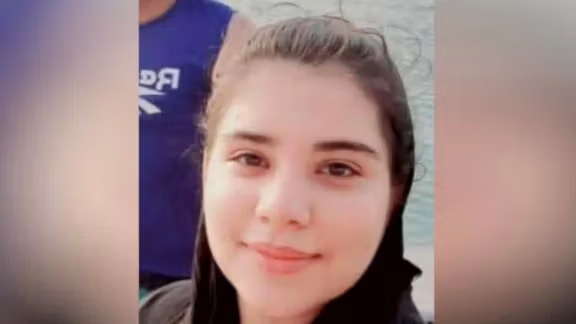
The murder of a girl by her father, allegedly for laughing with a boy at a park, has once again highlighted lack of laws to prevent ‘honor-killings’ in Iran.
The father of sixteen-year-old Ariana Lashkari shot her in the chest with a hunting rifle on Monday in Nourabad-e Mamasani, a small town in Fars Province. The young girl had fled to her paternal grandmother’s home after an argument with her father, Mohammad-Kazem Lashkari, over her behavior which her father considered as a disgrace to the family.
Ariana’s father said after his arrest that he had only meant to scare his daughter and killed her in a moment of rage.
Iran's Islamic Penal Code stipulates that fathers and paternal grandfathers cannot be sentenced to death for killing a child or grandchild. In such cases the perpetrator may be sentenced to prison and payment of blood money to the next of kin, that is the mother, if demanded. Mothers can also completely forgive the murderer and forego the blood money.
In murder cases, the judge has the power to hand out additional sentences "on behalf of the public" if the crime is particularly violent or harms society in some way.
Perpetrators of honor killings are often not brought to justice as most families do not demand harsh punishment for them, particularly if the perpetrator is the victim’s father.
Honor killings are prevalent in some parts of Iran mostly due to societal beliefs and the Islamic Republic’s lax laws and light sentences that encourage the behavior.
The head of Reyhaneh Women’s NGO said in January that about 60 women had fallen victim to honor killings in Iran in the preceding two years including some as young as ten years old.
Former President Hassan Rouhani’s administration in January 2021 passed a bill intended to help protect women against domestic and other forms of gender-based violence but the parliament which is dominated by hardliners has so far shelved the bill.
The bill was proposed a few months after thirteen-year-old Romina Ashrafi was beheaded by her father Reza Ashrafi in northern Iran for eloping with an older man.
Romina and her lover were detained after her family filed complaints with the police, and a court handed her back to her father despite her pleas not to send her home because she said her father was a temperamental and would kill her for her disobedience.
Iranian media said before killing his daughter, Romina’s father had investigated the legal punishment before committing the crime and killed his daughter knowing that the maximum sentence for killing one's child was ten years in prison.
In February, a young man beheaded his 17-year-old wife, Mona Heydari, with the help of his brother and displayed the head around the streets in the southwestern city of Ahvaz when the young wife was brought back from Turkey. Mona who had traveled to Turkey to get away from her family had been persuaded by her own father, her husband’s uncle, to return to Iran.
Iran is one of the four countries that have not joined the UN Convention on the Elimination of All Forms of Discrimination against Women.
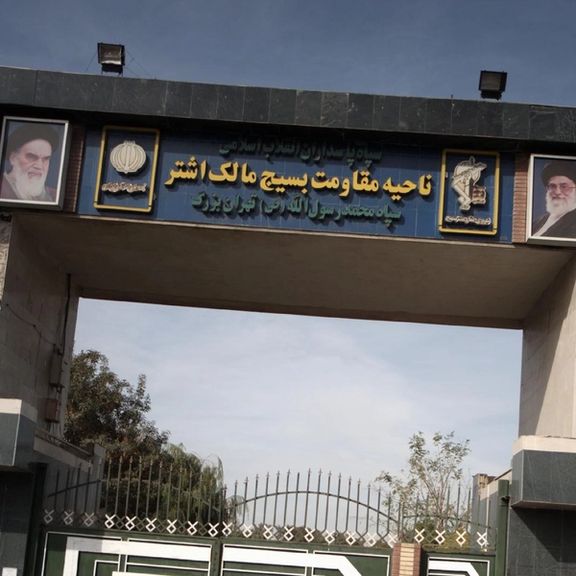
Two explosions rattled the Malek Ashtar base of Iran’s Revolutionary Guard’s paramilitary force Basij militia in southeast of the capital Tehran late Friday.
Videos shared on social media showed fire and smoke billowing from the base.
Iranian official media and websites affiliated with the Revolutionary Guard have remained silent on the incident.
Since May, there have been several attacks and mysterious incidents against Revolutionary Guard (IRGC) officers. One key commander was assassinated in Tehran on May 22 in broad daylight, while another was said to have fallen from the roof of his house and died a few days later. Iran has blamed Israel, in what has damaged the reputation of Iran’s intelligence and security organizations.
In a statement, the exiled Iranian opposition group Mujahedin-e Khalq Organization (MEK) claimed the attack was carried out by “revolutionary cells”, a term it often uses to characterize anti-regime acts and protests in Iran. The group which used large-scale violence in the 1980s and 1990s in its fight against the Islamic Republic, later distanced itself from armed attacks.
In early June, an Iranian hacktivist group reportedly affiliated with the Albania-based MEK, named ‘Uprising till Overthrow’ hacked into and deactivated over 5,000 surveillance cameras and 150 websites and online services of Tehran Municipality.
The MEK was listed by the US from 1997 to 2012 as a ‘foreign terrorist organization,’ but was subsequently removed from the list. The group has cultivated links with many politicians in the US and Europe, paying large sums for attendance or speeches at its rallies.
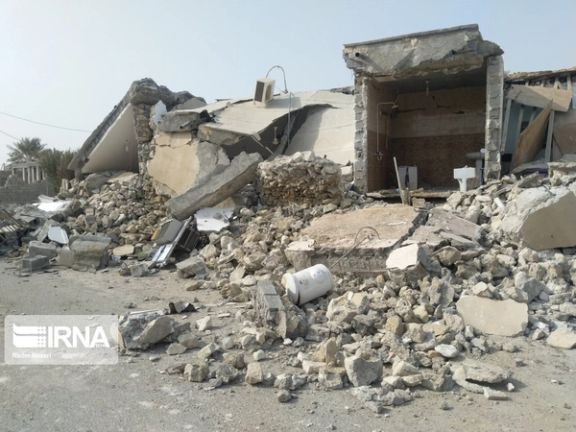
At least five people were killed and 49 injured by two strong earthquakes followed by many aftershocks in southern Iran early on Saturday, July 2.
A magnitude 6.1 earthquake hit Iran’s Hormozgan province, with the area hit soon after by two strong quakes of up to 6.3 magnitude.
Some 24 tremors, two with a magnitude of 6.3 and 6.1, followed the 2 a.m. local time quake that flattened the village of Sayeh Khosh near Iran's Persian Gulf coast. The most recent tremor occurred around 8 a.m., officials told state TV.
"All of the victims died in the first earthquake and no-one was harmed in the next two severe quakes as people were already outside their homes," said Foad Moradzadeh, governor of Bandar Lengeh country, quoted by the state news agency IRNA.
Emergency services spokesperson Mojtaba Khaledi told state TV that half of the 49 people injured had been discharged from hospitals.
Saeid Pourzadeh of the Kish island crisis task force said shipping and flights in that part of the Persian Gulf had not been affected by the quakes.
State TV said 150 quakes and tremors had struck western Hormozgan over the past month.
Major geological fault lines crisscross Iran, which has suffered several devastating earthquakes in recent years. In 2003, a magnitude 6.6 quake in Kerman province killed 31,000 people and flattened the ancient city of Bam.